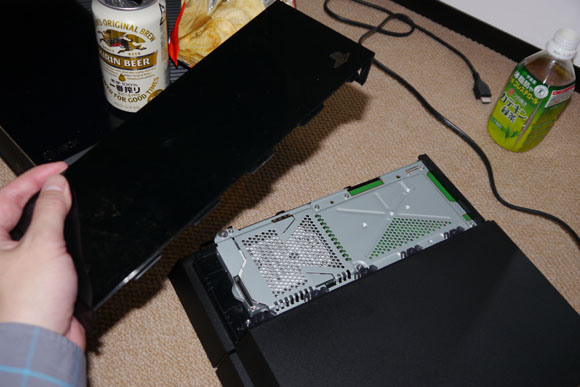 Our resident food writer Kuzo loves travelling the world in search of new and exotic McDonald’s food. However, he’s also been known to experiment with game consoles in between meals.
Our resident food writer Kuzo loves travelling the world in search of new and exotic McDonald’s food. However, he’s also been known to experiment with game consoles in between meals.
When the Nintendo Wii U came out he tested its online capability while riding nearly 300 km/h on the Shinkansen. Now with his newly acquired PS4, he’s going to attempt to upgrade the built-in hard disc drive (HDD) with a faster solid state drive (SSD). The following is his report.
***DISCLAIMER: The following is simply chronicling Kuzo’s experience with replacing a PS4’s hard drive. This is not intended to be an instructional piece, nor do we take responsibility for any damage caused by someone mimicking what he did – especially with all the food he had laying around. If you want to maximize the chances of a problem-free gaming experience you’re best to leave everything as it is.***
Swapping a PS4 HDD with an SSD
By Kuzo
My PS4 has a 500GB HDD, but I attempted to replace it with a 512GB SSD to get faster loading speeds. Actually, I could have also upped the capacity to 800GB or even 1T but my budget was limited. To get the best bang for the yen I went with a similar sized SSD.
■ Checking the official site
Before going ahead with the swap I referred again to the Sony Computer Entertainment (SCE) website regarding the PS4’s hard disc drive.
“You can replace the built-in HDD. External HDD’s are not possible. The PS4 comes with a built-in SATA II 5,400rpm HDD. When replacing the HDD please use a 9.5mm thick drive with a capacity of at least 160GB. *We do not guarantee the compatibility of all types of HDD.” (SCE website)
Everything was set to go. Time to round up the equipment!
Some people would probably want to do this by-the-book and also get some rubber gloves to prevent static electricity along with some compressed air to blow away dust and a microfiber cloth for fingerprints all atop a nice sturdy table. But I figure I’ll just ground myself with sushi and work on the carpet instead.
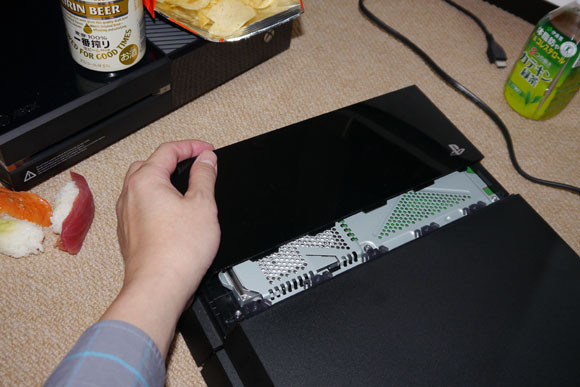
■ Buying the HDD
To get the replacement drive I went down to Akihabara and their numerous computer parts shops. Being an ametuer at this, the staff at a place called Dosupara were extremely supportive in helping me choose the right SSD for this situation. After considering speed, price, and capacity we decided on a Toshiba SSD HG5d by CFD Sales Inc. (CSSD-S6T512NHG5Q) for 36,580 yen (US$358).
■ Prepare the USB
Before even touching the console I made sure I had the system software ready to install. I got a USB stick with at least 1GB of free space, and because I’m superstitious I made sure it was a Sony.
Then I downloaded the system software from the SCE website contained in a file named PS4UPDATE.PUP. I had to be careful though since there were two files with the same name. One was an update version (approx. 308MB) and another was a new install version (approx. 859MB). I wanted the new install since I was going to use a blank SSD.
On the USB stick I created a folder named “PS4” and inside that I made another folder called “UPDATE” which is where I saved the update file.
■ Removing the PS4 HDD
The exterior case of the PS4 had no screws. I just had to slide the shiny part of the black casing by grabbing it with both hands firmly yet gently. After that the HDD could be easily seen attached to a metal frame.
Only one screw held it to the unit and it was marked with the four symbols of the PlayStation controller (□△×○). I could easily get it out with my trusty Philips screwdriver. It was almost too easy.
■ Inserting the replacement SSD
The HDD was still attached to a metal plate with four screws. After removing that I could fit the SSD in its place. Of course, I wasn’t about to toss out a perfectly good 500GB hard drive, so I kept the old PS4 HDD for a rainy day.
Making sure it was facing the right way, I simply screwed the SSD into the metal plate with the four screws, slid it into place on the unit’s metal frame and tightened the final □△×○ screw to lock it in.
■ Installing the software
With the unit back together I hooked it up and inserted the USB that I had prepared earlier. I turned the power on and got a sudden shock at the error message that appeared on the screen. However, as I thankfully put the file in the right folders the install began after a moment. It worked!!
All in all it was surprisingly easy. I may have to try this again some time if the price of a 1TB SSD ever comes down. That being said if anyone wants to try something like this I highly recommend making sure you plan everything in advance. Research to make sure you’re using the right drive for the job and that you’re aware of the risk you’re taking with your machine.
Source: PlayStation (Japanese)
Original article by Kuzo
▼ The PS4 exterior comes off easily by sliding… and yes, that appears to be a piece of sushi on the floor
▼ It’s ridiculously easy. We also recommend using an Xbox One hold the beer and chips. Not the sushi though. It’s terrible at that.
▼ You can see the HDD right away
▼ It’s really nice of Sony to make this so easy to do!
▼ The distinctive □△×○ marks help to keep it separate from other screws.
▼ Not a lot of force was needed on the screws.
▼ Just one screw and the HDD comes out easy.
▼ The HDD was attached to a bracket with four screws.
▼ The new SSD bought for about $350.
▼ It’s important to make sure the drives are both the same size.
▼ Thanks for the help HDD! But it’s time to step aside. It’s also time for some instant udon!
▼ It’s a little hard to tell from the picture but this is the new SSD attached to the metal plate.
▼ The SSD needed to be put in firmly to avoid errors.
▼ Then just needed to put the one screw in and slide the cover back on.
▼ The system software was stored on a USB stick.
▼ Put it in and turned on the power
▼ An error message will precede the install.
▼ Once this screen was seen, everything was alright.
▼ And the new solid state PS4 is up and running!
▼ The new sped-up PS4 didn’t even take long to verify… and will someone please pick up the sushi!
[ Read in Japanese ]


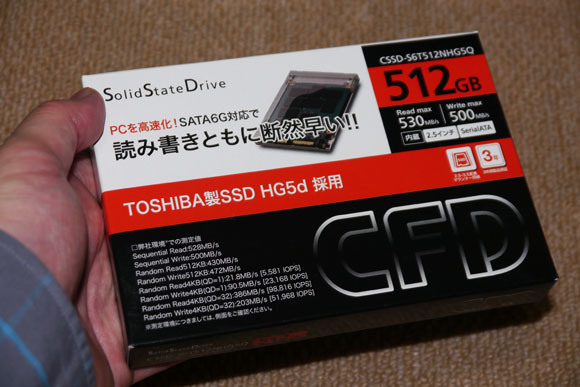
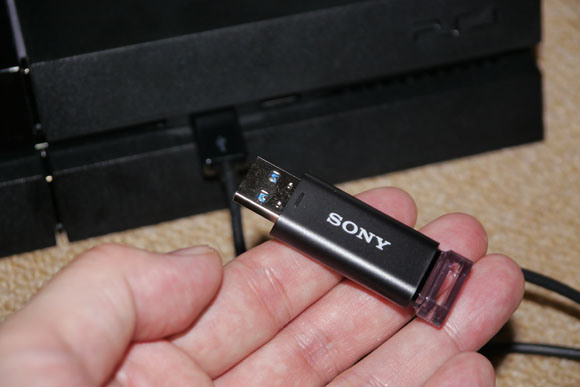
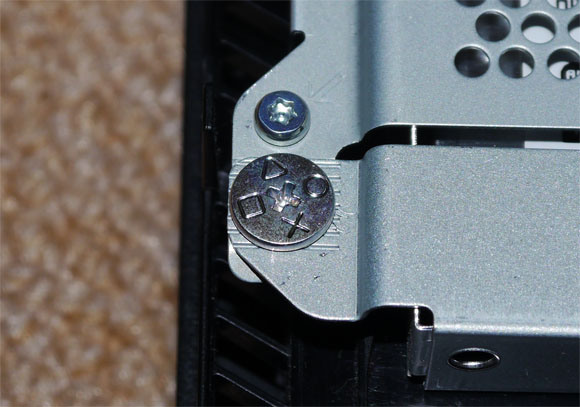
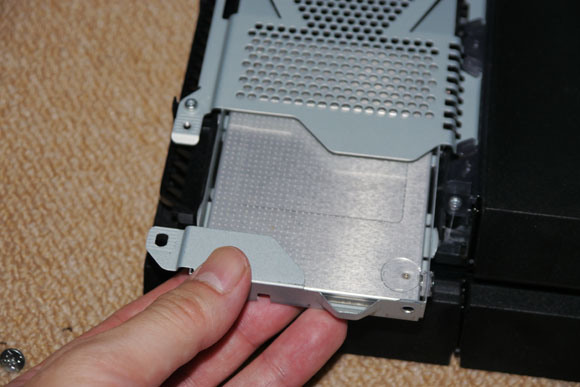
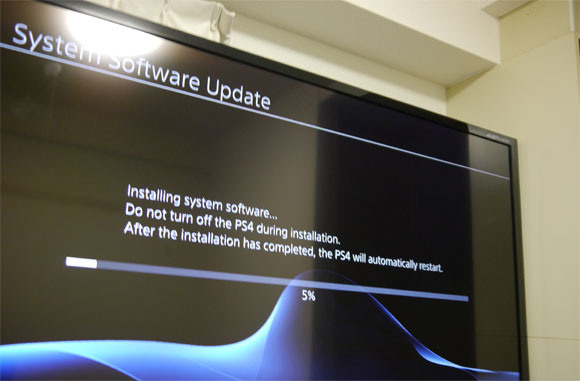
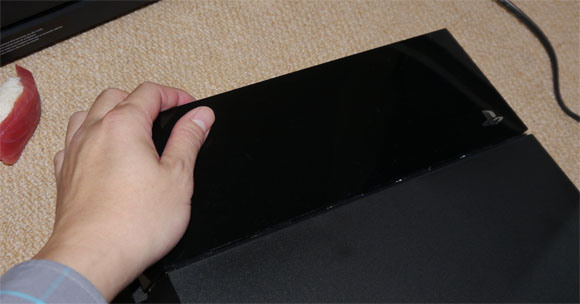
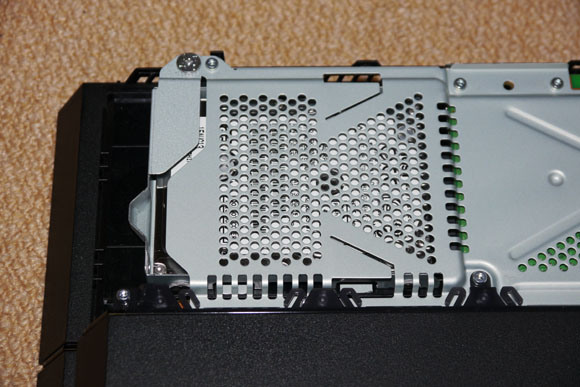
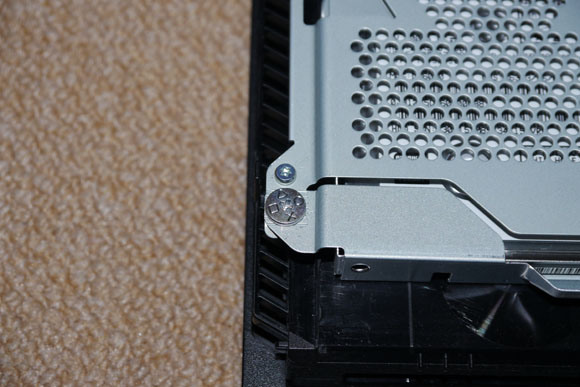
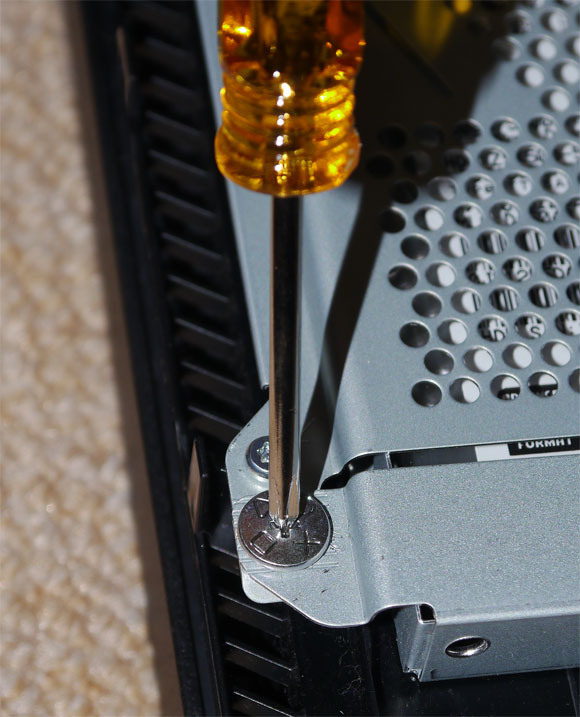
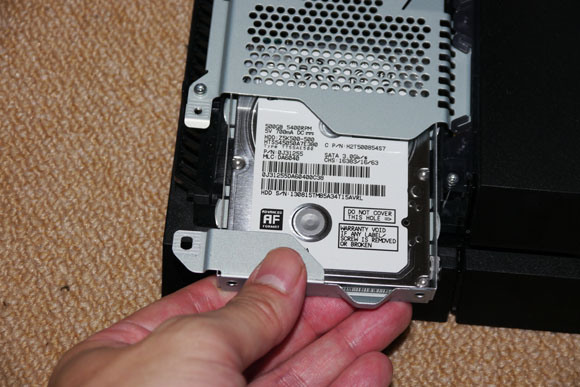
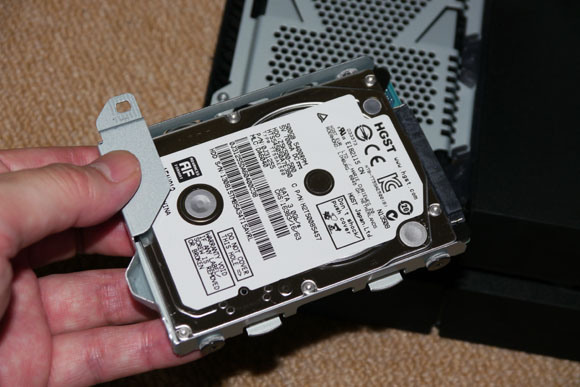
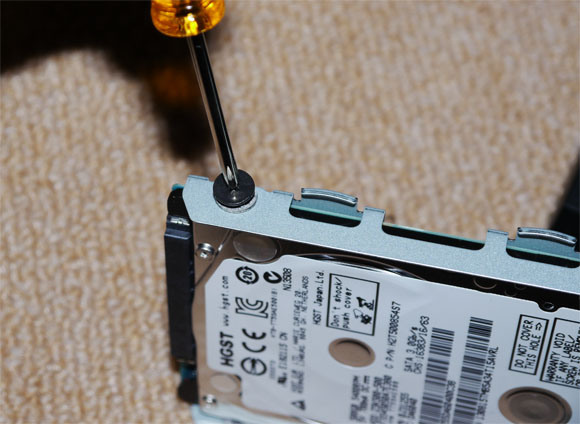
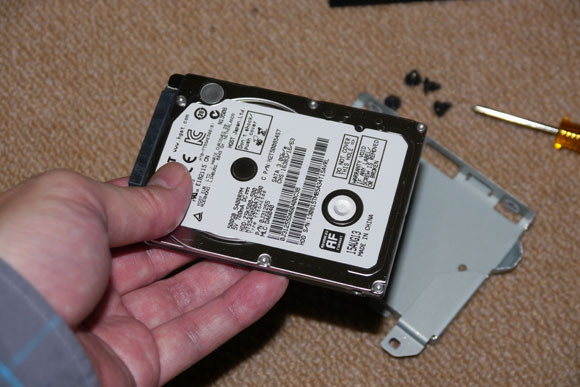
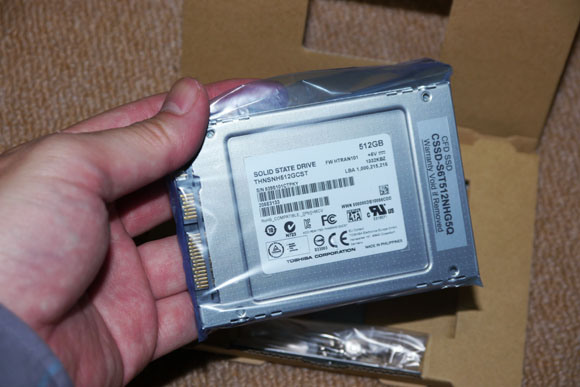
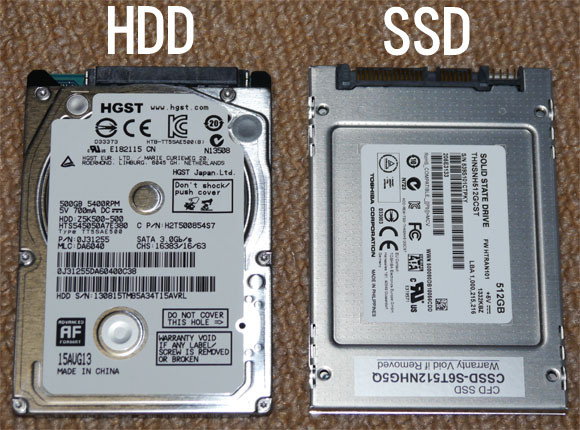
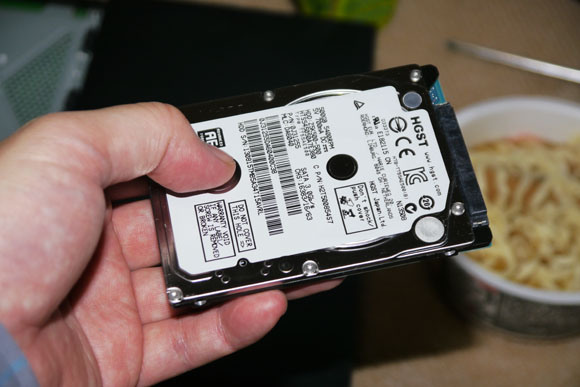
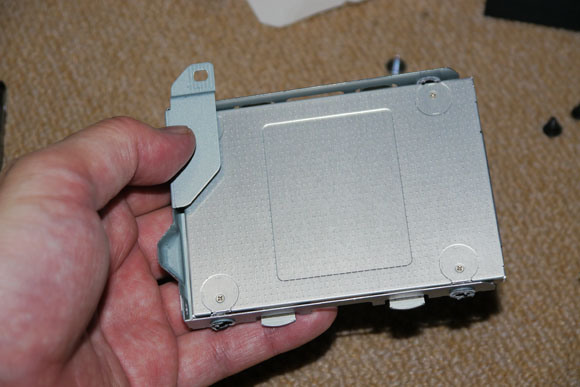
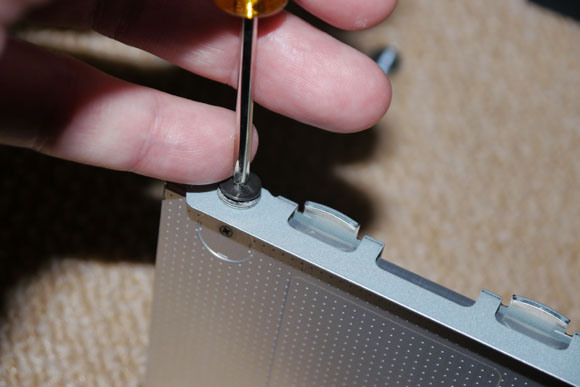
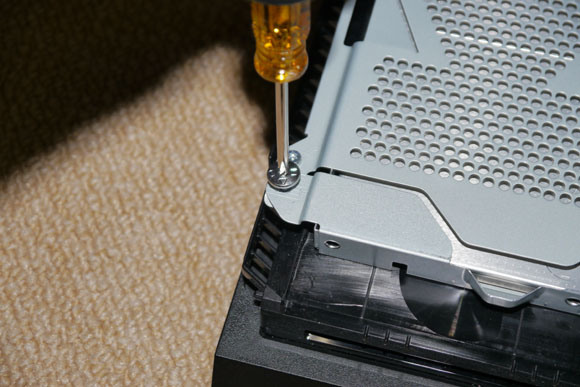
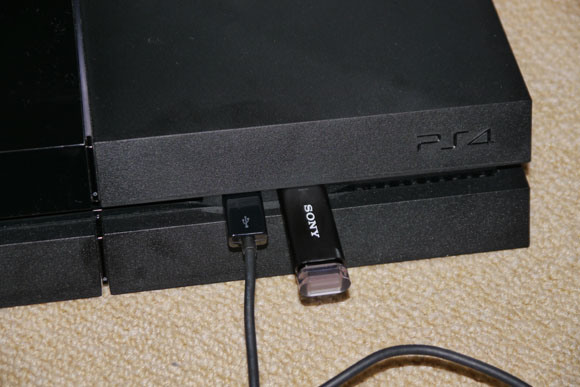
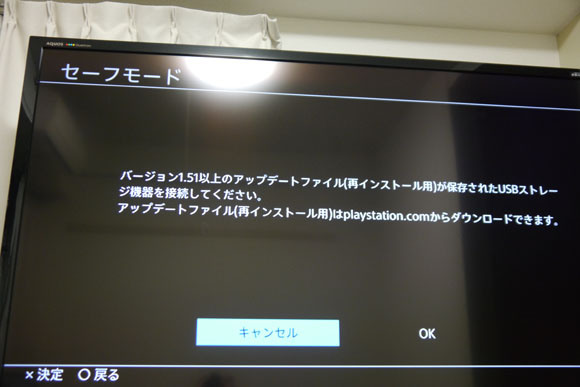
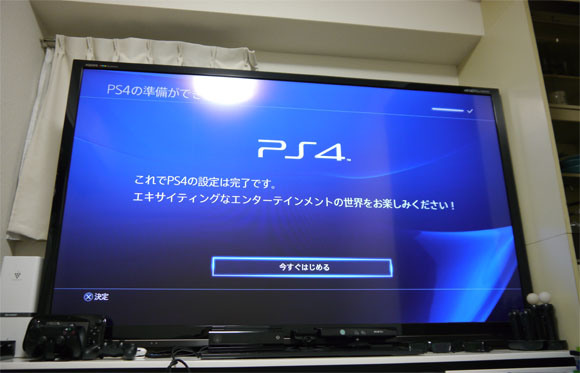
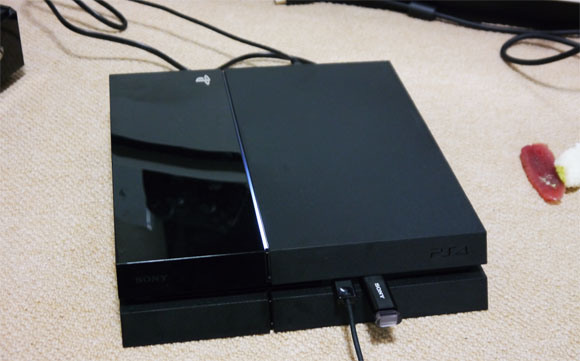
 PS4 undercuts Xbox One’s pricing by nearly $200 in Mexico
PS4 undercuts Xbox One’s pricing by nearly $200 in Mexico We try to get the first PS4 sold in Japan, and so does this guy dressed like a Move controller
We try to get the first PS4 sold in Japan, and so does this guy dressed like a Move controller Sony’s newest commercial for the Persona 5 PS4 bundle has 5,000 reasons to love it【Video】
Sony’s newest commercial for the Persona 5 PS4 bundle has 5,000 reasons to love it【Video】 A chick, a fat guy and an Asian dude were standing in line for a PS4…
A chick, a fat guy and an Asian dude were standing in line for a PS4… Game dev berates gaming media on its “junior high school” analysis of PS4’s performance in Japan
Game dev berates gaming media on its “junior high school” analysis of PS4’s performance in Japan Tokyo Skytree turns pink for the cherry blossom season
Tokyo Skytree turns pink for the cherry blossom season Princesses, fruits, and blacksmiths: Study reveals the 30 most unusual family names in Japan
Princesses, fruits, and blacksmiths: Study reveals the 30 most unusual family names in Japan Adorable Totoro acorn key holders come with a special guest hidden inside[Photos]
Adorable Totoro acorn key holders come with a special guest hidden inside[Photos] Highest Starbucks in Japan set to open this spring in the Tokyo sky
Highest Starbucks in Japan set to open this spring in the Tokyo sky Beautiful blue apple jam is taking the Japanese internet’s breath away!
Beautiful blue apple jam is taking the Japanese internet’s breath away! Foreign tourists in Japan will get free Shinkansen tickets to promote regional tourism
Foreign tourists in Japan will get free Shinkansen tickets to promote regional tourism Four dirt-cheap but tasty places to grab lunch in Tokyo’s Shibuya shopping mecca
Four dirt-cheap but tasty places to grab lunch in Tokyo’s Shibuya shopping mecca The old-school awesomeness of the New Akao, a Showa-era hot spring hotel still standing tall
The old-school awesomeness of the New Akao, a Showa-era hot spring hotel still standing tall Stay at a Japanese capsule hotel in Tokyo for less than US$20 a night
Stay at a Japanese capsule hotel in Tokyo for less than US$20 a night Strongest-ever Dodekamin energy drink approved by Japan’s Home Economics Dragon
Strongest-ever Dodekamin energy drink approved by Japan’s Home Economics Dragon The 10 most annoying things foreign tourists do on Japanese trains, according to locals
The 10 most annoying things foreign tourists do on Japanese trains, according to locals Starbucks Japan releases new sakura goods and drinkware for cherry blossom season 2026
Starbucks Japan releases new sakura goods and drinkware for cherry blossom season 2026 Naruto and Converse team up for new line of shinobi sneakers[Photos]
Naruto and Converse team up for new line of shinobi sneakers[Photos] Is Sapporio’s Snow Festival awesome enough to be worth visiting even if you hate the snow? [Pics]
Is Sapporio’s Snow Festival awesome enough to be worth visiting even if you hate the snow? [Pics] Japan has trams that say “sorry” while they ride around town…but why?
Japan has trams that say “sorry” while they ride around town…but why? Sakura Totoro is here to get spring started early with adorable pouches and plushies
Sakura Totoro is here to get spring started early with adorable pouches and plushies Starbucks Japan unveils new sakura Frappuccino for cherry blossom season 2026
Starbucks Japan unveils new sakura Frappuccino for cherry blossom season 2026 Poop is in full bloom at the Unko Museums for cherry blossom season
Poop is in full bloom at the Unko Museums for cherry blossom season Now is the time to visit one of Tokyo’s best off-the-beaten-path plum blossom gardens
Now is the time to visit one of Tokyo’s best off-the-beaten-path plum blossom gardens Playing Switch 2 games with just one hand is possible thanks to Japanese peripheral maker
Playing Switch 2 games with just one hand is possible thanks to Japanese peripheral maker Japan’s newest Shinkansen has no seats…or passengers [Video]
Japan’s newest Shinkansen has no seats…or passengers [Video] Foreigners accounting for over 80 percent of off-course skiers needing rescue in Japan’s Hokkaido
Foreigners accounting for over 80 percent of off-course skiers needing rescue in Japan’s Hokkaido Super-salty pizza sends six kids to the hospital in Japan, linguistics blamed
Super-salty pizza sends six kids to the hospital in Japan, linguistics blamed Take a trip to Japan’s Dododo Land, the most irritating place on Earth
Take a trip to Japan’s Dododo Land, the most irritating place on Earth Archfiend Hello Kitty appears as Sanrio launches new team-up with Yu-Gi-Oh【Pics】
Archfiend Hello Kitty appears as Sanrio launches new team-up with Yu-Gi-Oh【Pics】 Survey asks foreign tourists what bothered them in Japan, more than half gave same answer
Survey asks foreign tourists what bothered them in Japan, more than half gave same answer Japan’s human washing machines will go on sale to general public, demos to be held in Tokyo
Japan’s human washing machines will go on sale to general public, demos to be held in Tokyo Starbucks Japan releases new drinkware and goods for Valentine’s Day
Starbucks Japan releases new drinkware and goods for Valentine’s Day We deeply regret going into this tunnel on our walk in the mountains of Japan
We deeply regret going into this tunnel on our walk in the mountains of Japan Studio Ghibli releases Kodama forest spirits from Princess Mononoke to light up your home
Studio Ghibli releases Kodama forest spirits from Princess Mononoke to light up your home Major Japanese hotel chain says reservations via overseas booking sites may not be valid
Major Japanese hotel chain says reservations via overseas booking sites may not be valid Put sesame oil in your coffee? Japanese maker says it’s the best way to start your day【Taste test】
Put sesame oil in your coffee? Japanese maker says it’s the best way to start your day【Taste test】 No more using real katana for tourism activities, Japan’s National Police Agency says
No more using real katana for tourism activities, Japan’s National Police Agency says Taiwan’s PS4 packaging is way cuter than anyone else’s
Taiwan’s PS4 packaging is way cuter than anyone else’s Rumour: Sony planning to launch $500 PlayStation 4 & PS Vita bundle
Rumour: Sony planning to launch $500 PlayStation 4 & PS Vita bundle PS4 release date in Japan to be announced on September 9 (hopefully)
PS4 release date in Japan to be announced on September 9 (hopefully) Resident Evil Umbrella Corps gets collaboration PS4 models
Resident Evil Umbrella Corps gets collaboration PS4 models Final Fantasy VII’s PS4 port now available
Final Fantasy VII’s PS4 port now available Looking to make your PlayStation 4 stylish and unique? This real wood case may be just the thing!
Looking to make your PlayStation 4 stylish and unique? This real wood case may be just the thing! Japan’s most popular game console: PS4 sales to surpass Wii U
Japan’s most popular game console: PS4 sales to surpass Wii U So long, PlayStation 4 – Sony announces it’s ending repair service for early PS4 models
So long, PlayStation 4 – Sony announces it’s ending repair service for early PS4 models Akihabara shop lets you destroy your own hard drives for only 100 yen
Akihabara shop lets you destroy your own hard drives for only 100 yen Sony gives PlayStation 3 game cases a facelift, netizens complain they can’t tell games apart
Sony gives PlayStation 3 game cases a facelift, netizens complain they can’t tell games apart Get some Nintendo on your Sony with these PS4 skins (Oh, and they have an Evangelion one too!)
Get some Nintendo on your Sony with these PS4 skins (Oh, and they have an Evangelion one too!) Special edition Metal Gear Solid V PS4 is kind of uninspired, will probably sell by the bucketload
Special edition Metal Gear Solid V PS4 is kind of uninspired, will probably sell by the bucketload PlayStation 4 impressions: An Xbox fan and a Sony lover go head to head
PlayStation 4 impressions: An Xbox fan and a Sony lover go head to head PS4 20th Anniversary edition console sells at auction for jaw-dropping price
PS4 20th Anniversary edition console sells at auction for jaw-dropping price Prince William would “love to have a PlayStation 4” but wonders if his wife will let him
Prince William would “love to have a PlayStation 4” but wonders if his wife will let him